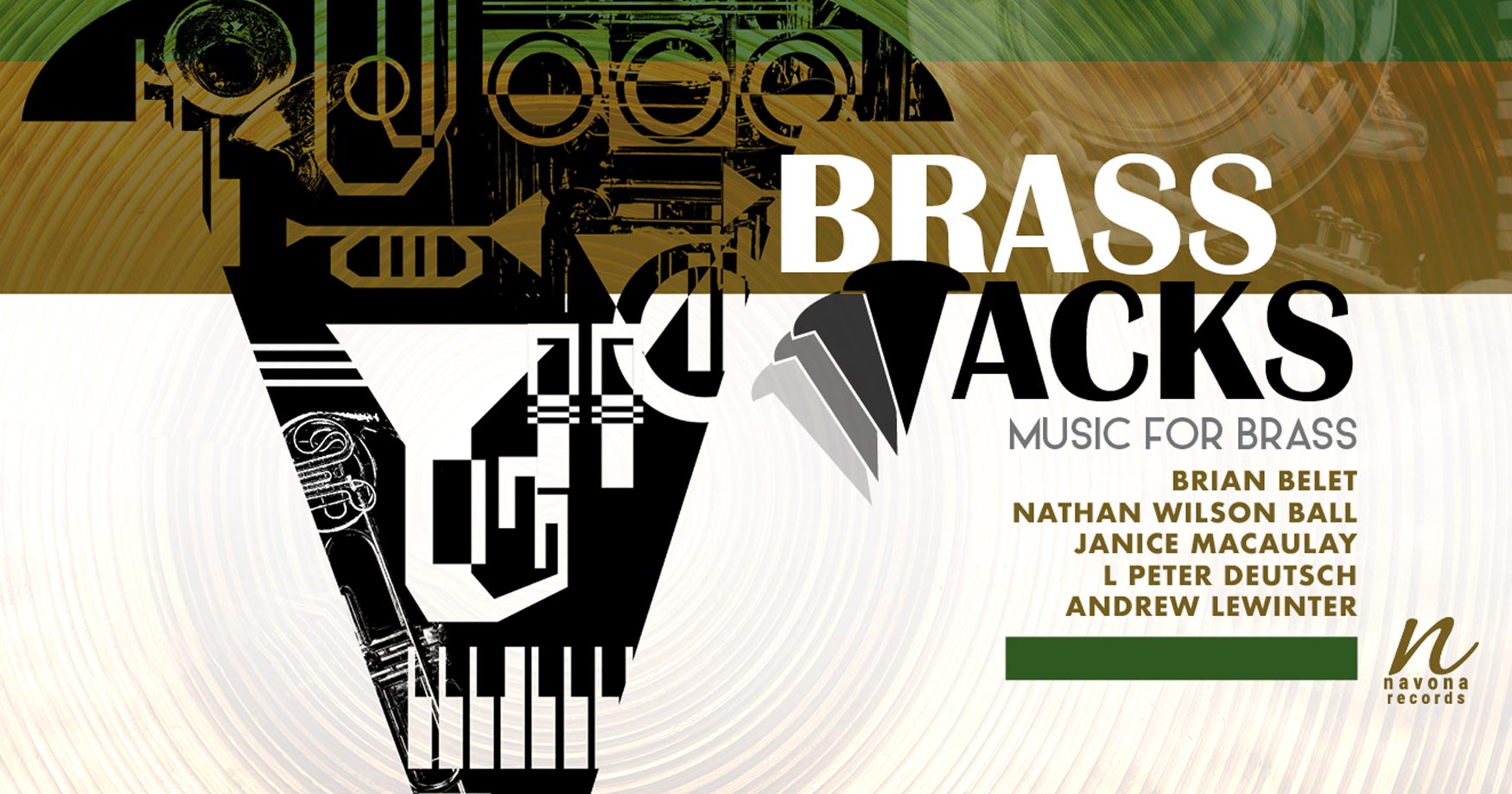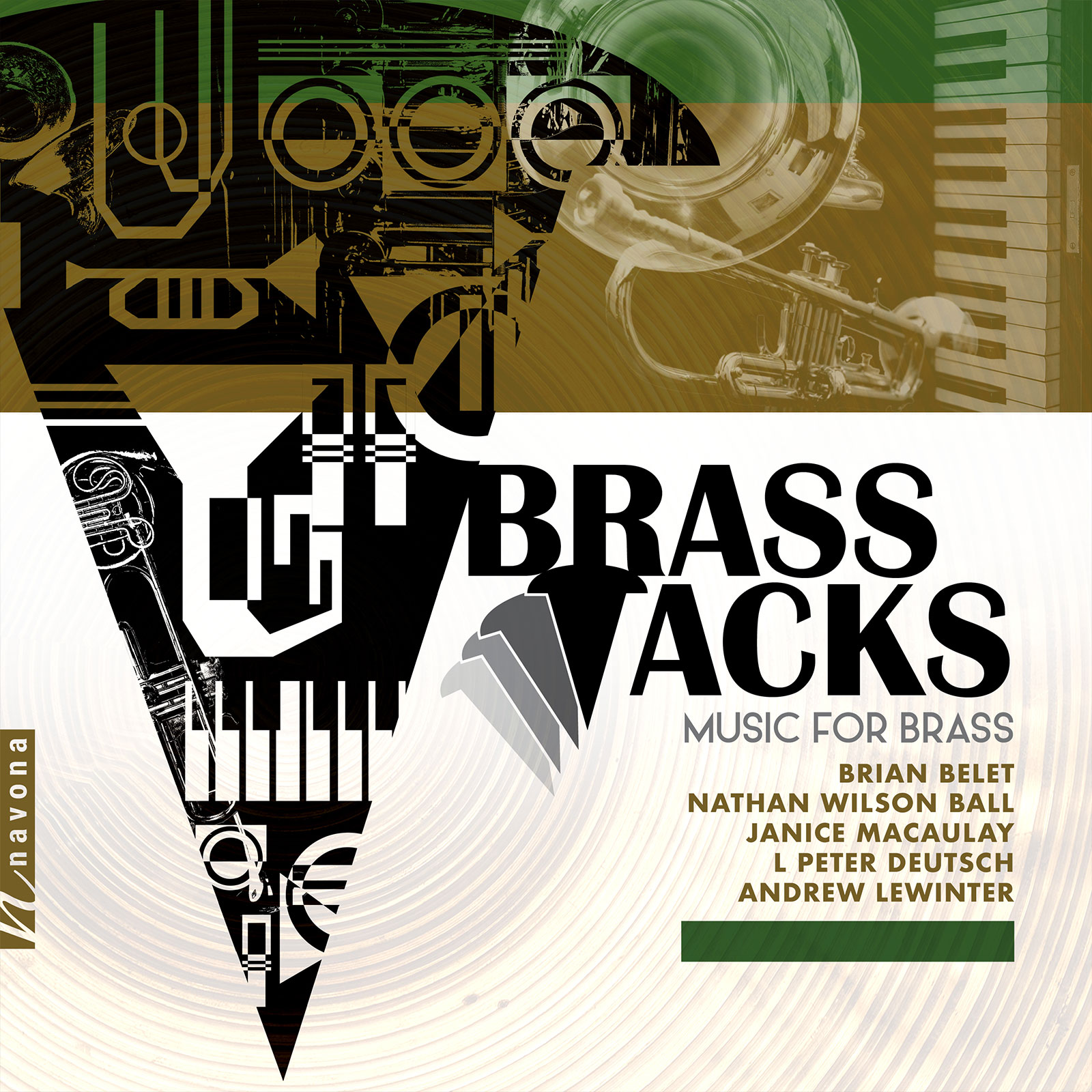BRASS TACKS from Navona Records offers far more than the fundamental idioms of classical music. While the works featured on this album pay homage to great classical and romantic composers, subtle contemporary flairs shine throughout the collection. Composer L Peter Deutsch brings a variety of original works to the table on this album, each performed by the Janáček Philharmonic Brass Quintet.
Today, Peter is our featured artist in “The Inside Story,” a blog series exploring the inner workings and personalities of our composers and performers. Read on to learn about his earliest inspirations in music, and to uncover details about an ambitious upcoming project of his…
Tell us about your first performance
April 1, 2005: De Humanitate, a very short piece for 4-part women’s chorus with Latin text by Hildegarde of Bingen, included in a program by the wonderful San Francisco Choral Artists. I was halfway through the undergraduate music program at Stanford, not even thinking of myself as a performance-ready composer yet, and the performance was one of the two greatest non-chemical highs of my life so far.
If you weren’t a musician, what would you be doing?
I had a multi-decade, financially and professionally successful career as a software developer; I still love tinkering with software projects the way that a lot of people enjoy tinkering with cars and motorcycles. If I weren’t doing composition, I’d be doing more of that. I’d also probably be doing more traveling, once COVID has receded.
What advice do you have for young musicians?
Not in order of importance:
- Even if you aren’t drawn to classical music, get basic skills in diatonic harmony, because that’s the basis for what the Western world considers appealing music, whether classical or popular.
- Learn to sing. You’ll enjoy it for your entire life, both for the music and for the social opportunities.
- Listen to a variety of music. A lot of the best and most interesting music comes from cross-genre influences.
- Remember that “real musicians have day jobs.” It’s very difficult to make a living as a performing artist and/or composer. (To be honest, I have no idea how one could hope to do it today.)
How have your influences changed as you grow as a musician?
When I started getting serious about becoming a composer, in 2003, my brain was pretty well saturated with 18th-century counterpoint, having listened to a huge amount of Bach’s instrumental music and learned to play a bit of the Well-Tempered Clavier on my own (I impressed my Stanford advisor by bringing him, after the first quarter of basic music theory and a little one-on-one instruction, a 4-voice piano fugue that he said would have been a good final project for his counterpoint class). While early-music styles are still my home base, I’ve also developed a second set of skills that are strongly influenced by Brahms, which have contributed a lot to my writing for piano trio.
What were your first musical experiences?
My father loved classical music, so I heard a lot of it growing up (He also liked to sing, despite the fact that he couldn’t carry a tune in a bucket). I suffered through piano lessons as a kid, but enjoyed playing some simple 4-hand piano pieces with my mother. Fortunately, the elementary school I attended had a great music program where everyone learned to read music, sing, and play the recorder.
Where and when are you at your most creative?
When I’m doing my best writing, I don’t feel I’m striving: it’s more like just writing down music I’m hearing that is there already. This happens most readily when I’m away from home, mostly away from people, and in a generally low-stress environment with a lot of opportunities to get out in nature. I wrote most of my most ambitious work to date — a 5-minute mini-concerto for cello and orchestra that PARMA will be recording very soon and hopefully releasing next year — during my annual 3-month vacation in Canada, when I sublet most of a house in Vancouver and enjoy the many local hiking opportunities. I also often find rainy and snowy weather energizing, which is a good thing because that’s what we have in Vancouver about 90% of the time I’m there.
Explore L Peter’s Latest Release
BRASS TACKS
BRASS TACKS is available now from Navona Records. Click here to visit the catalog page and explore this album.




